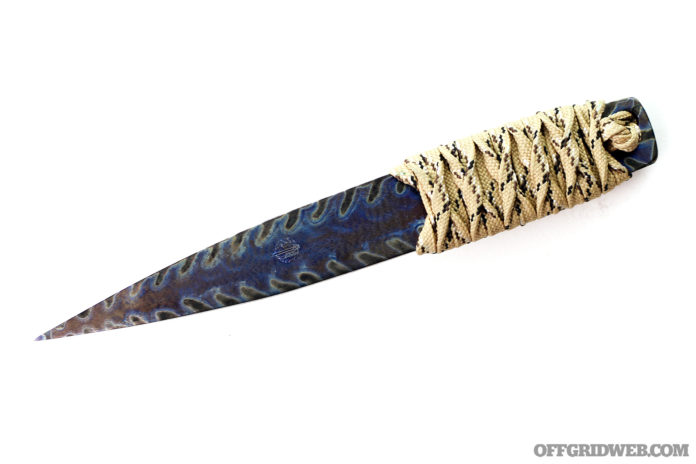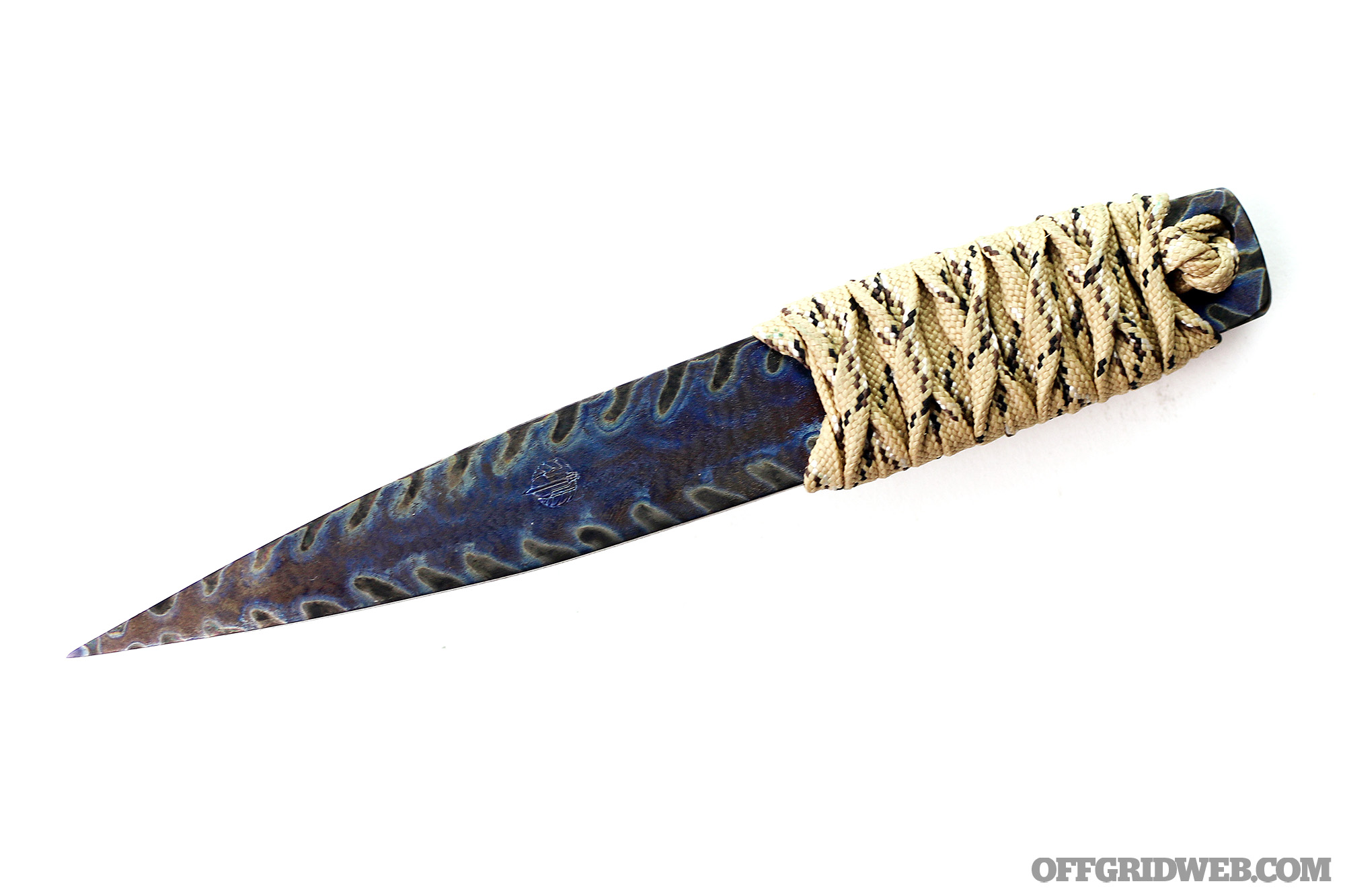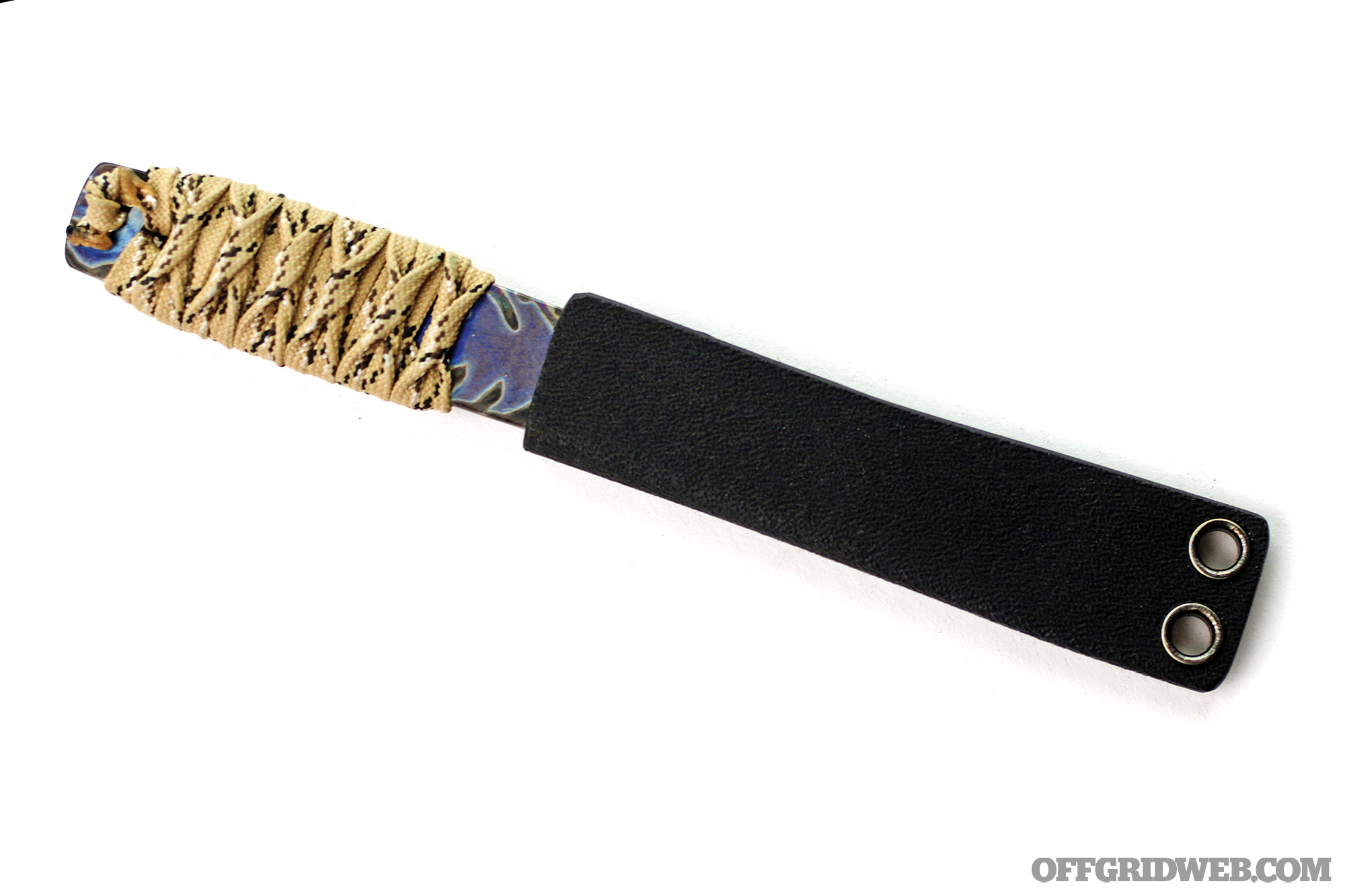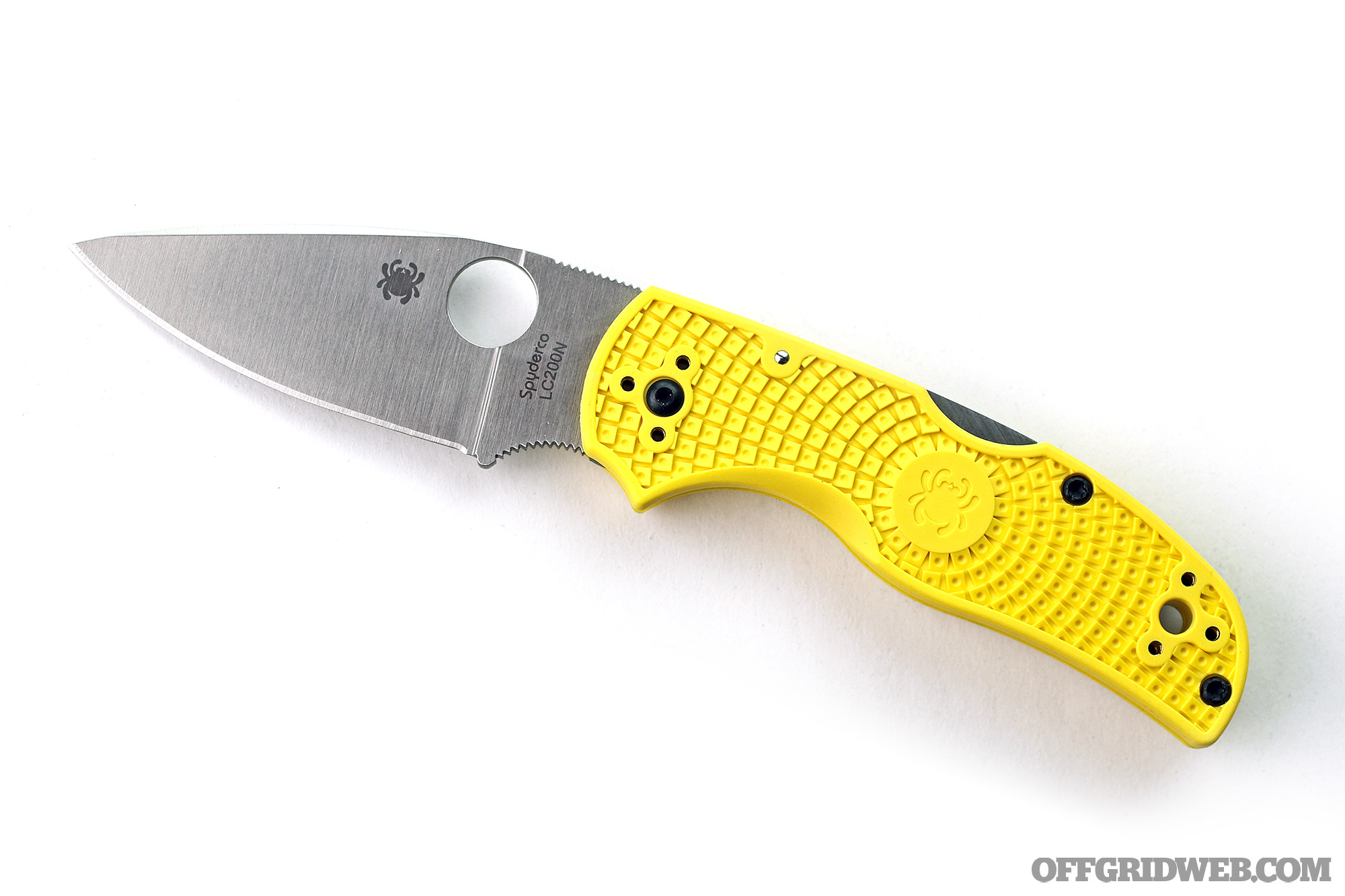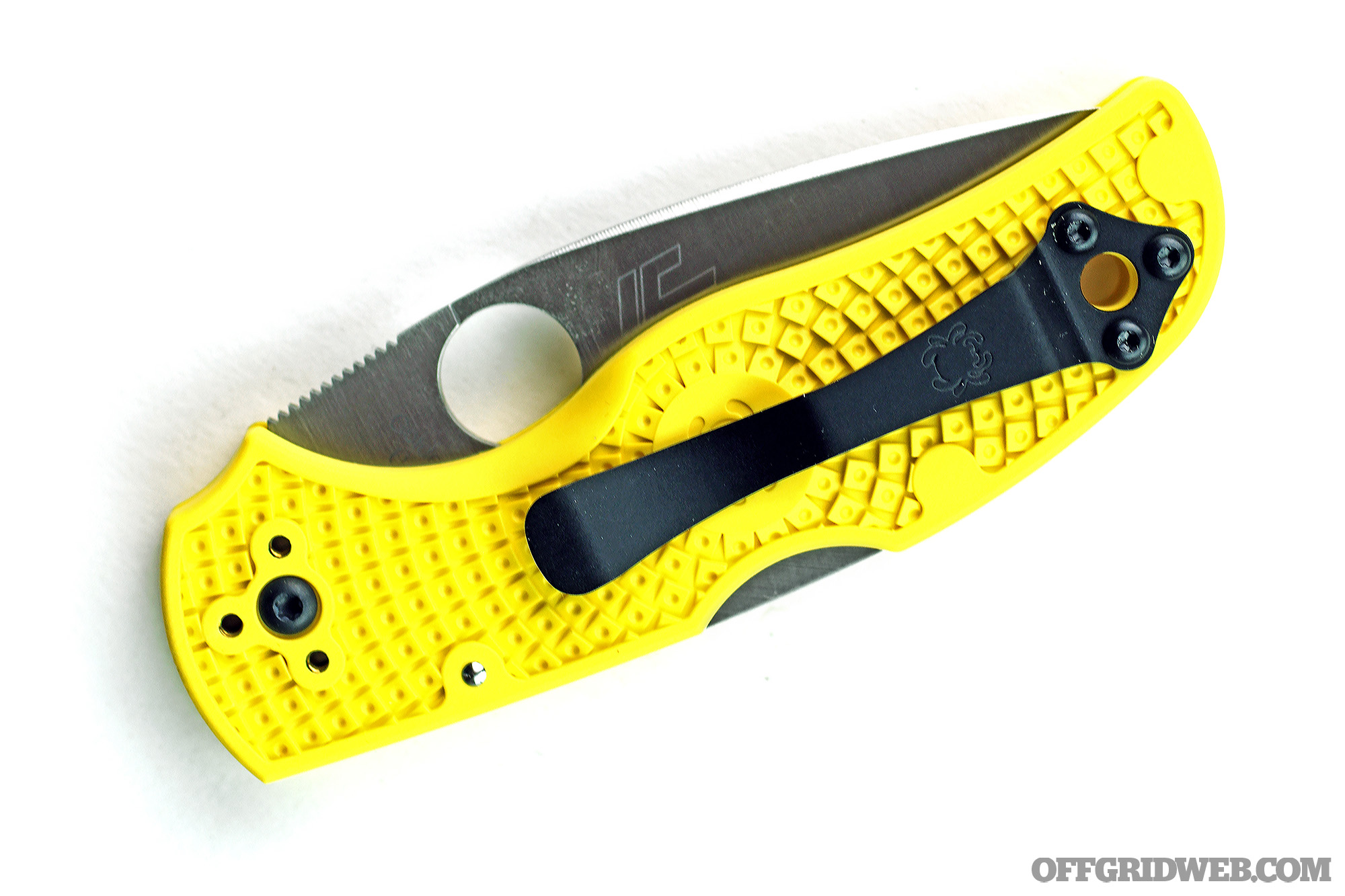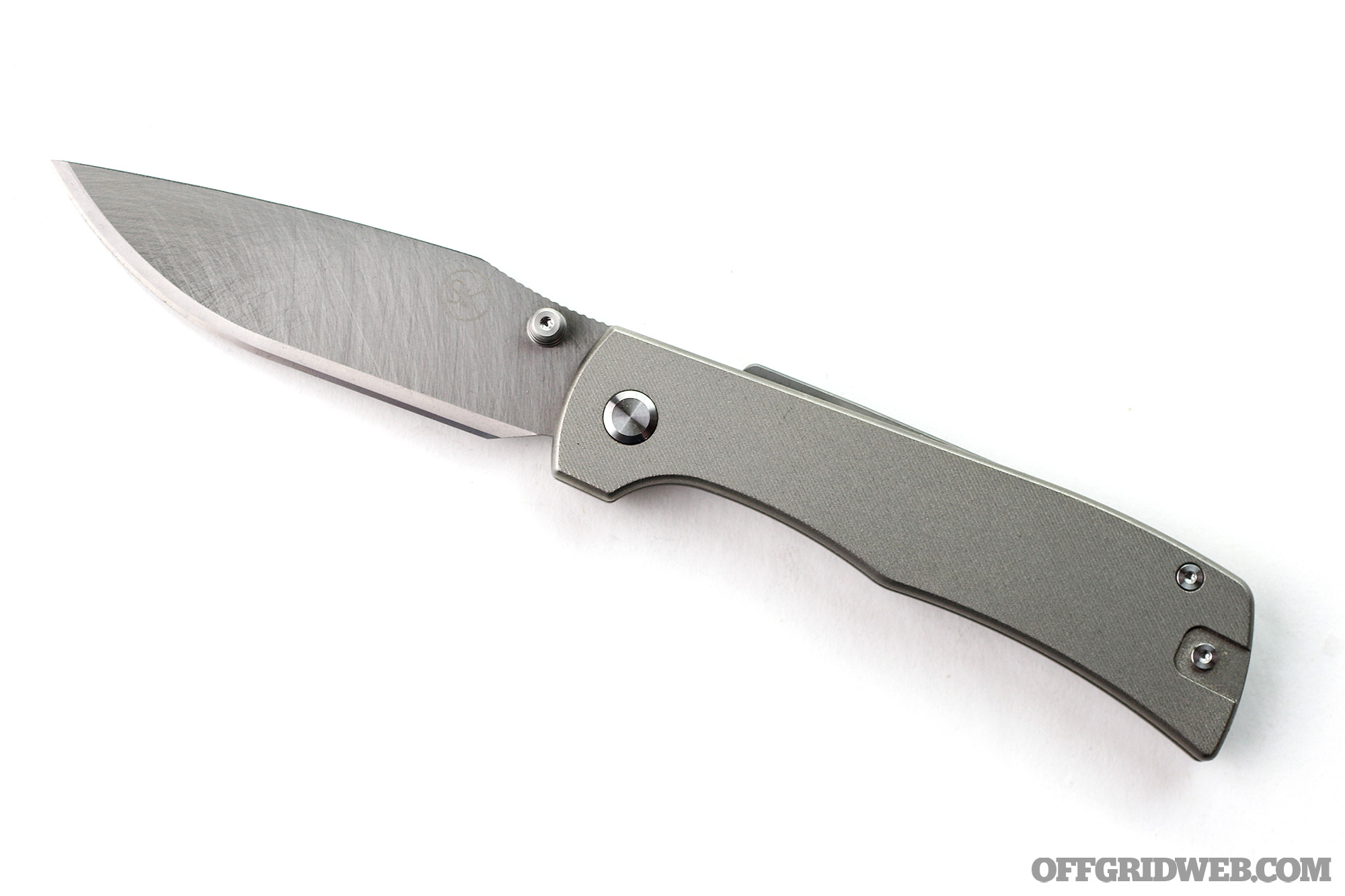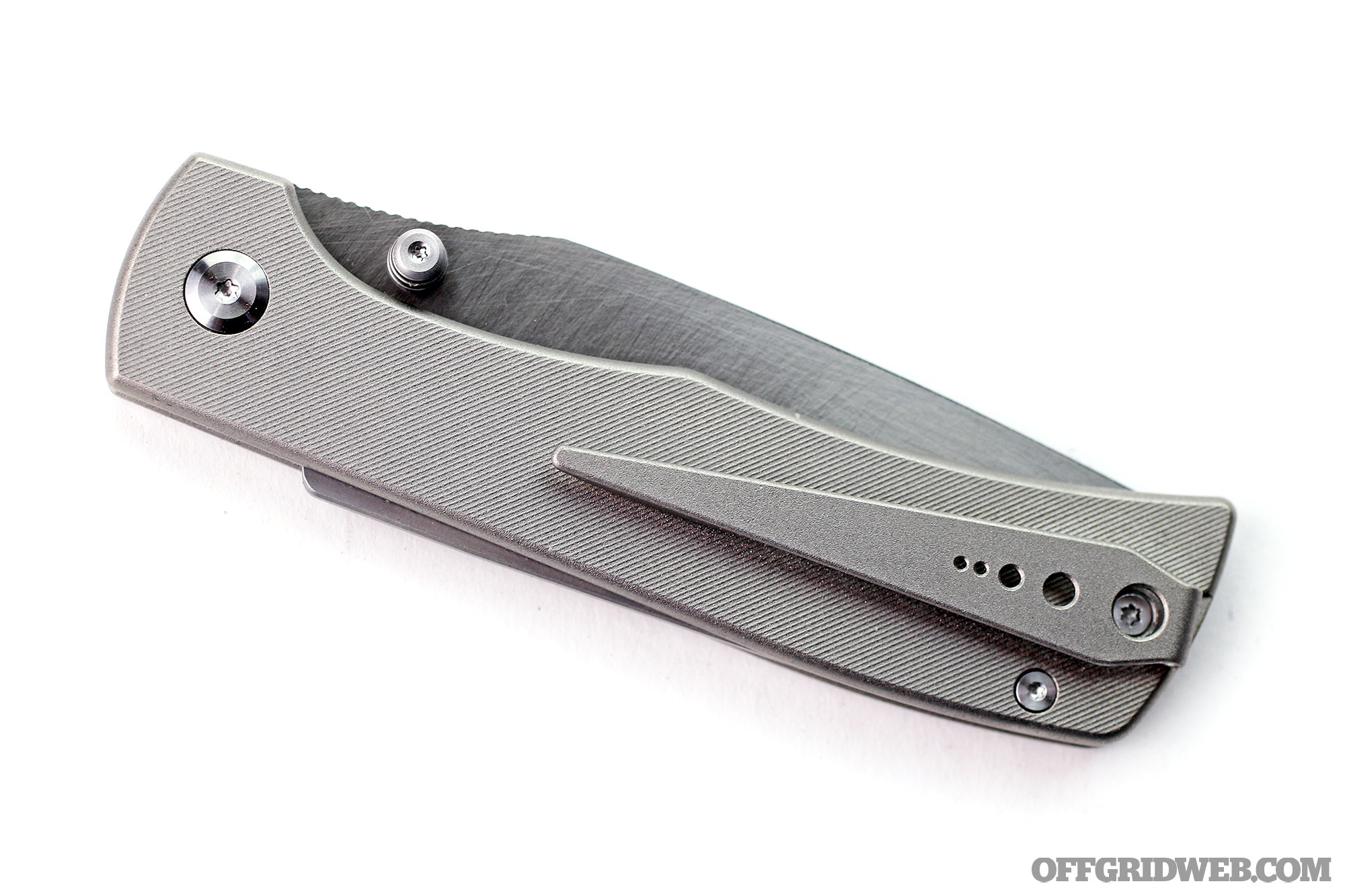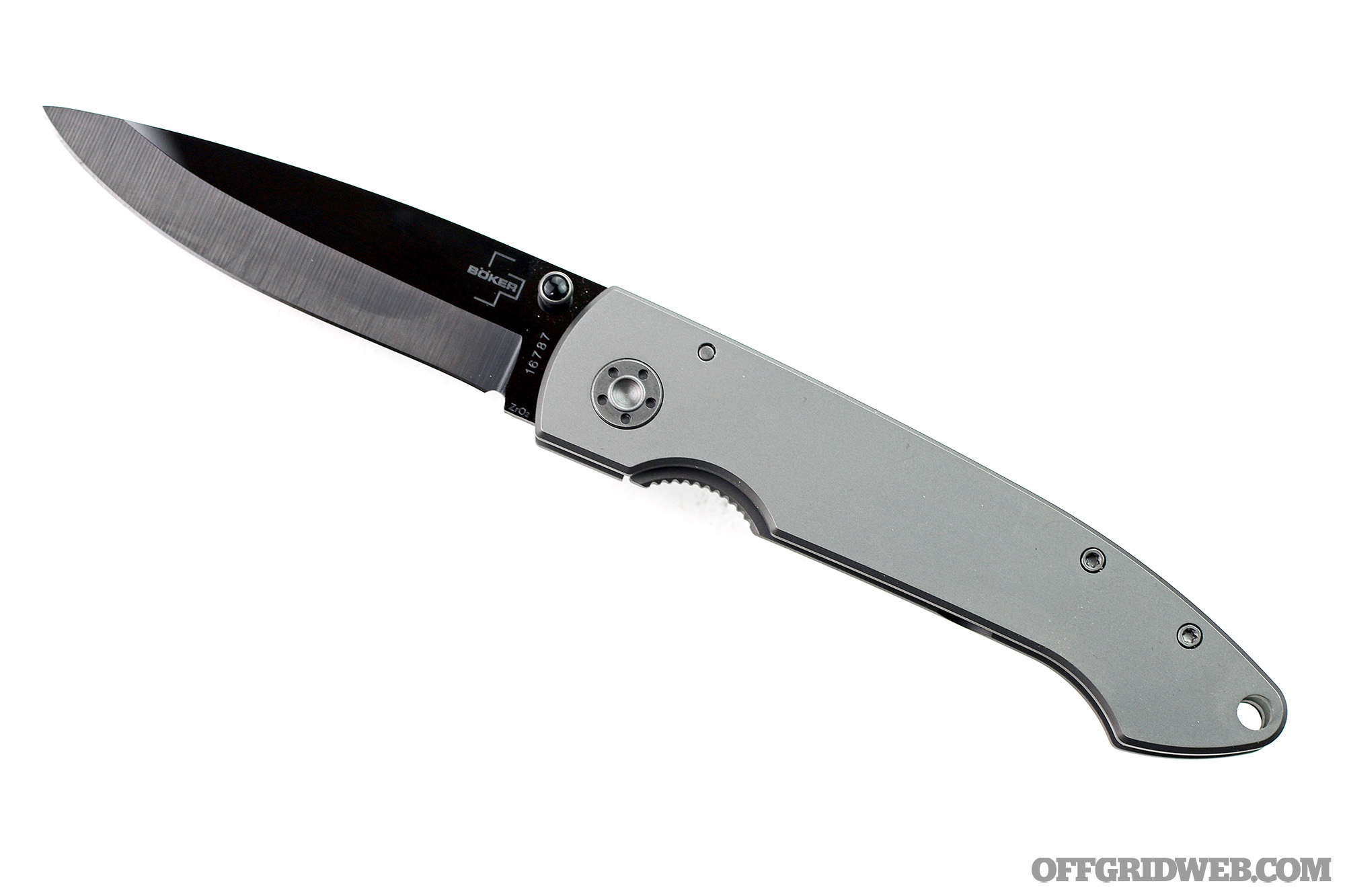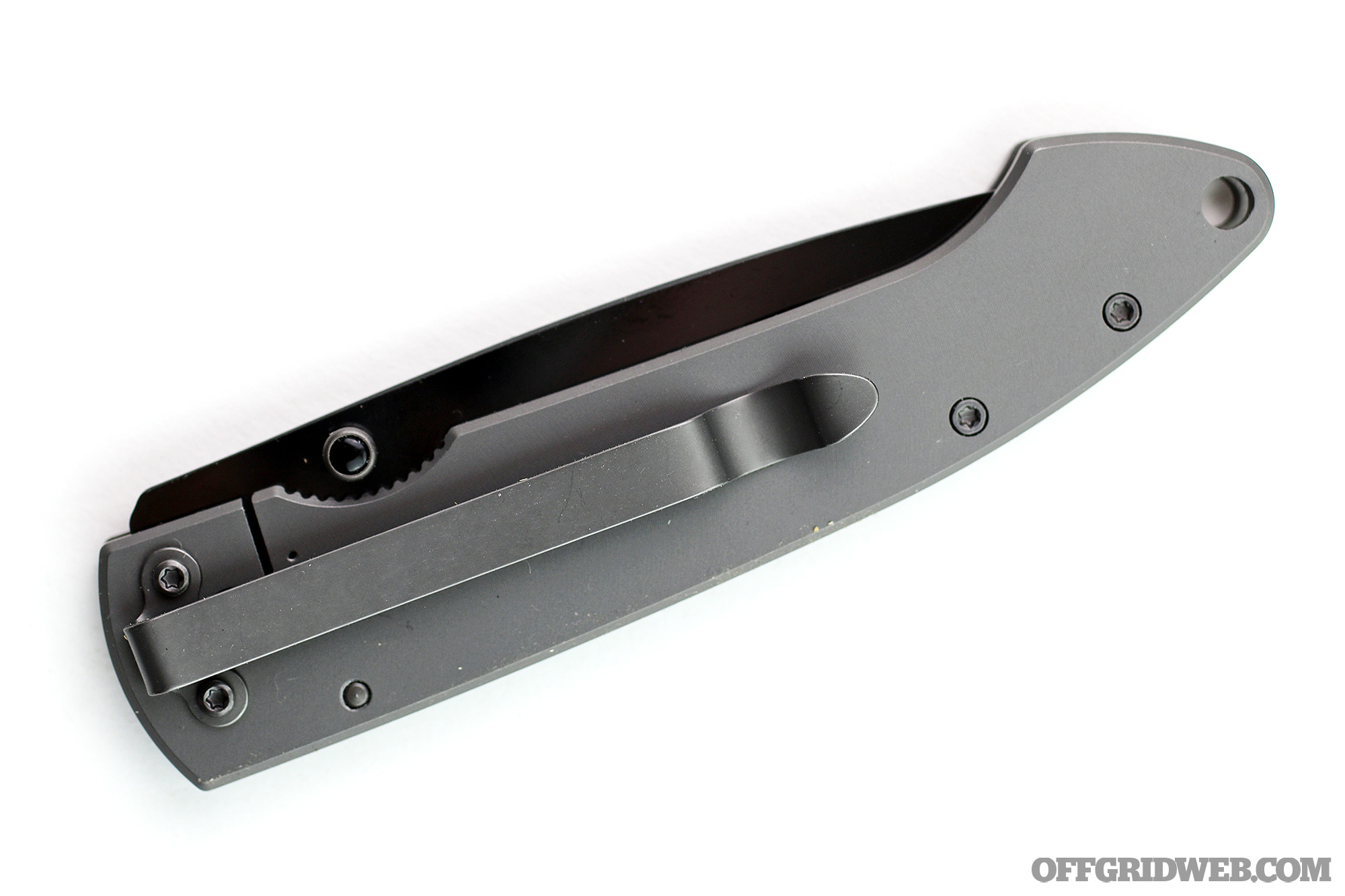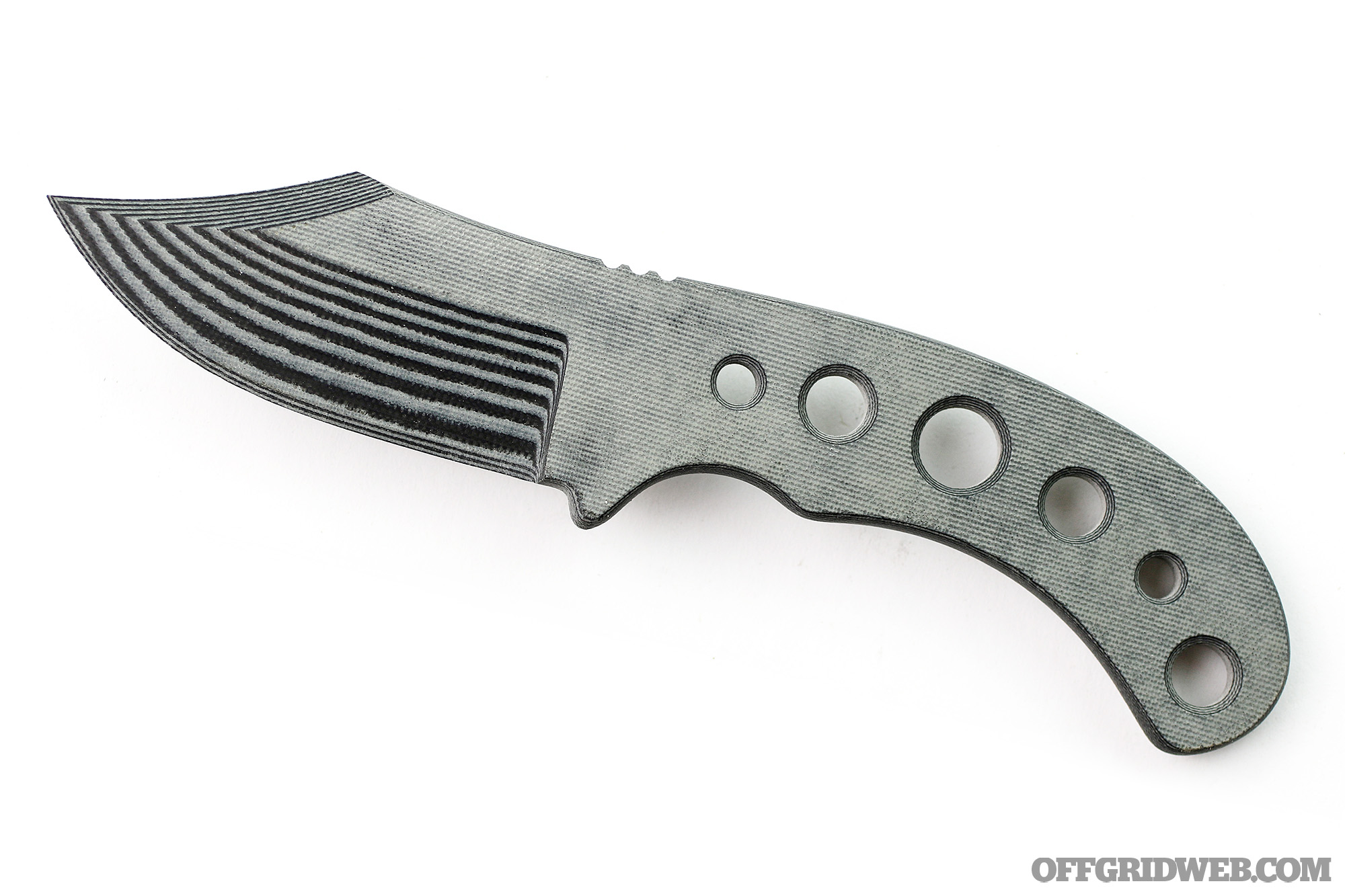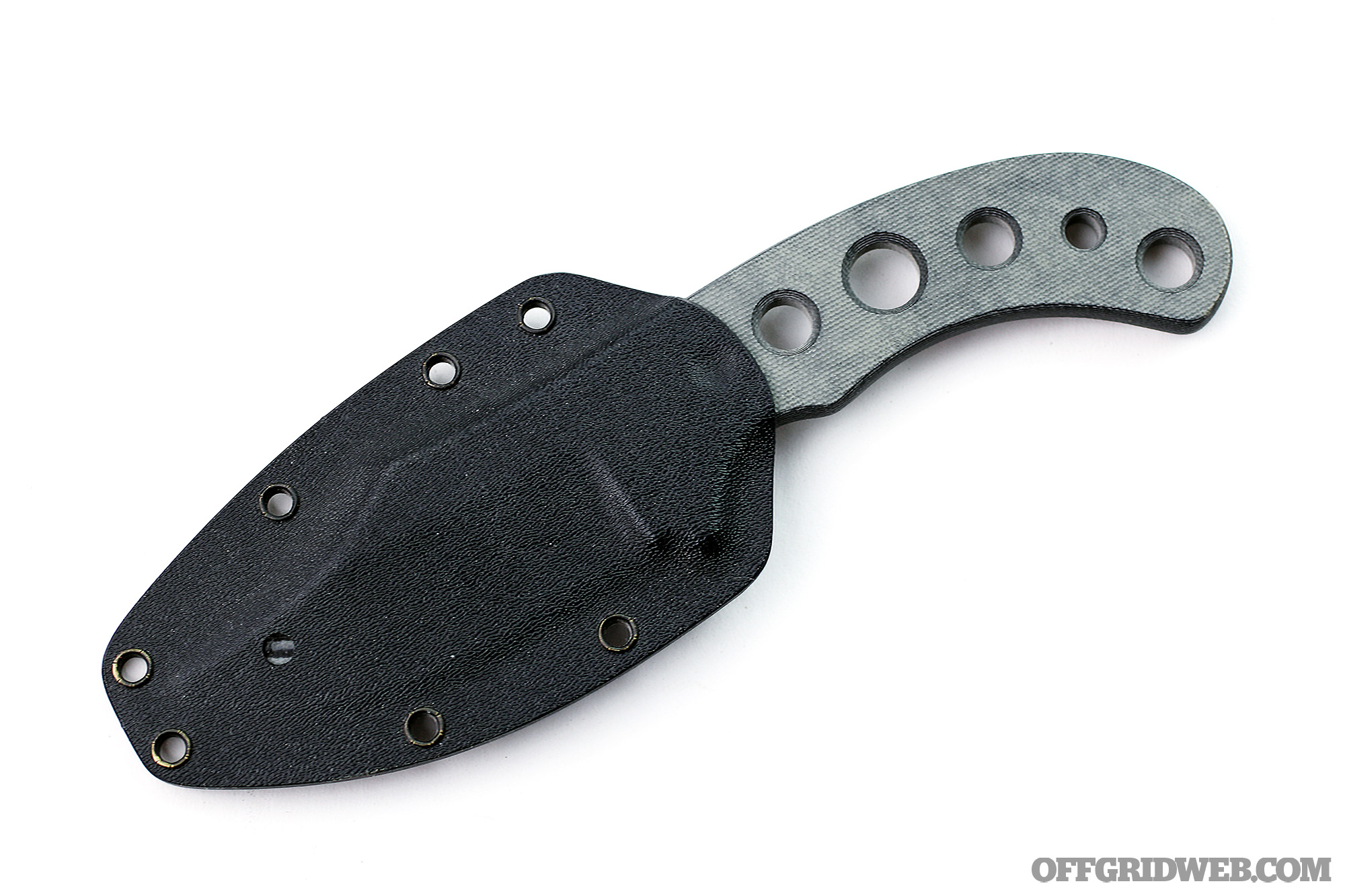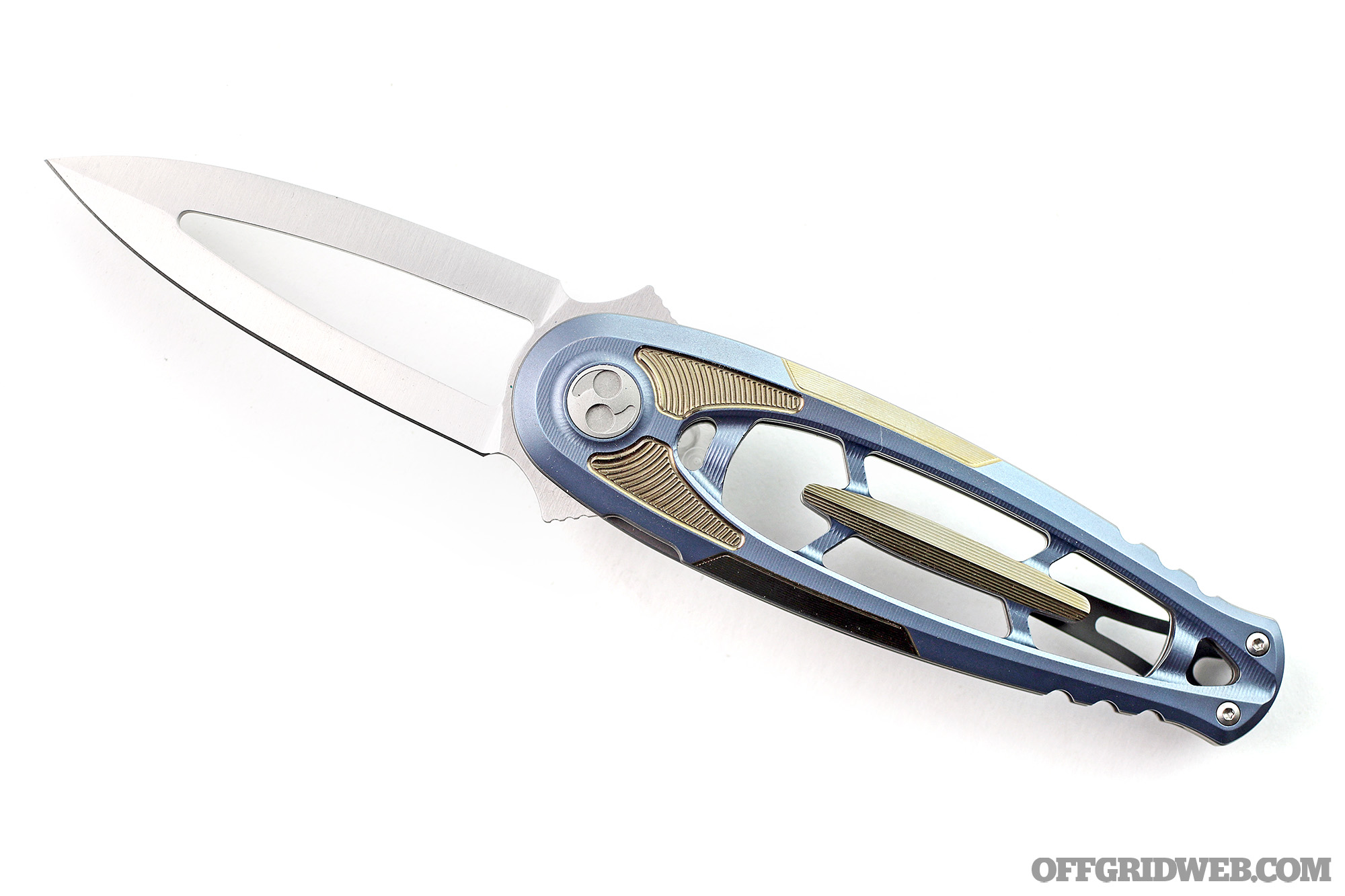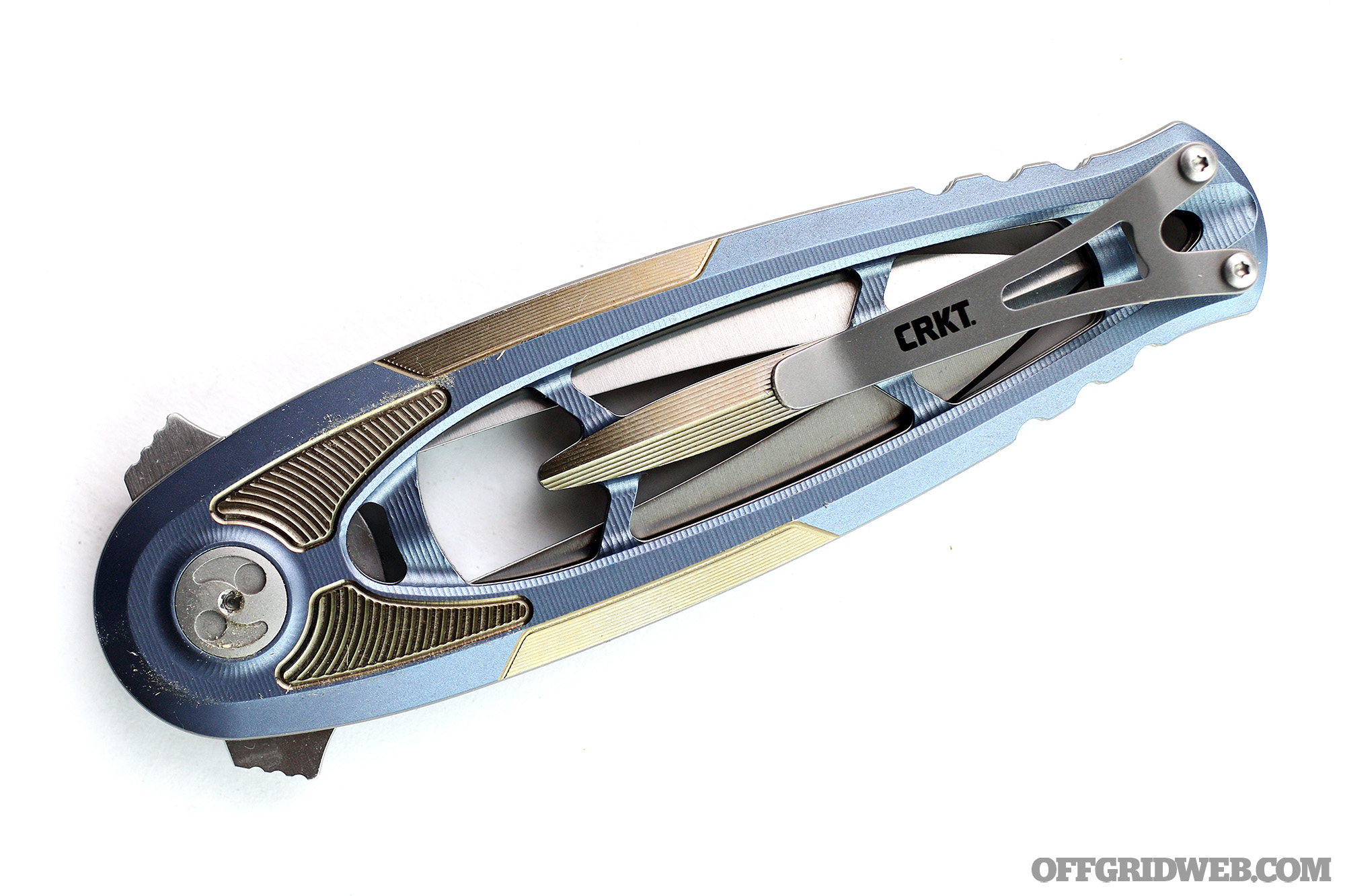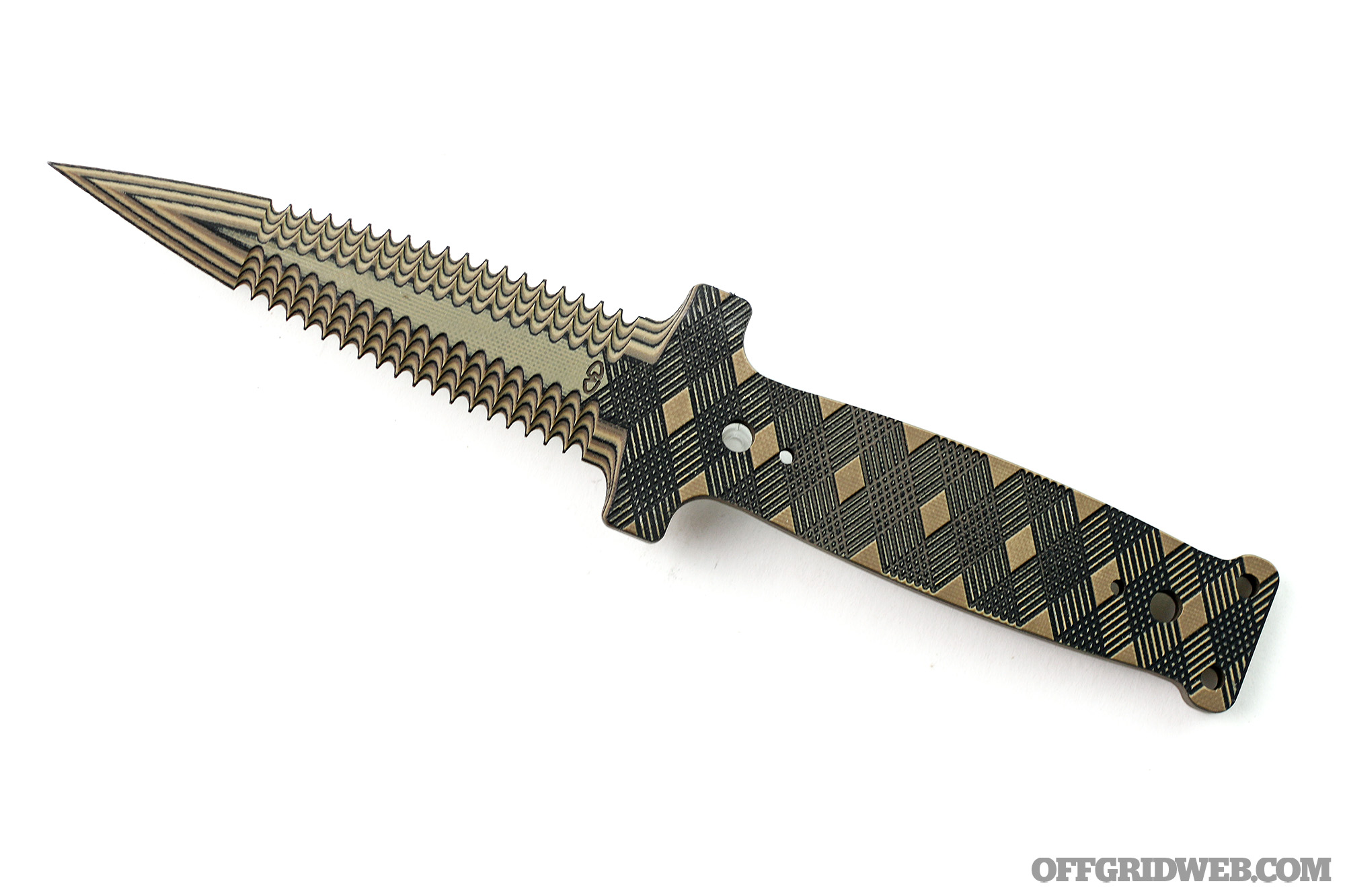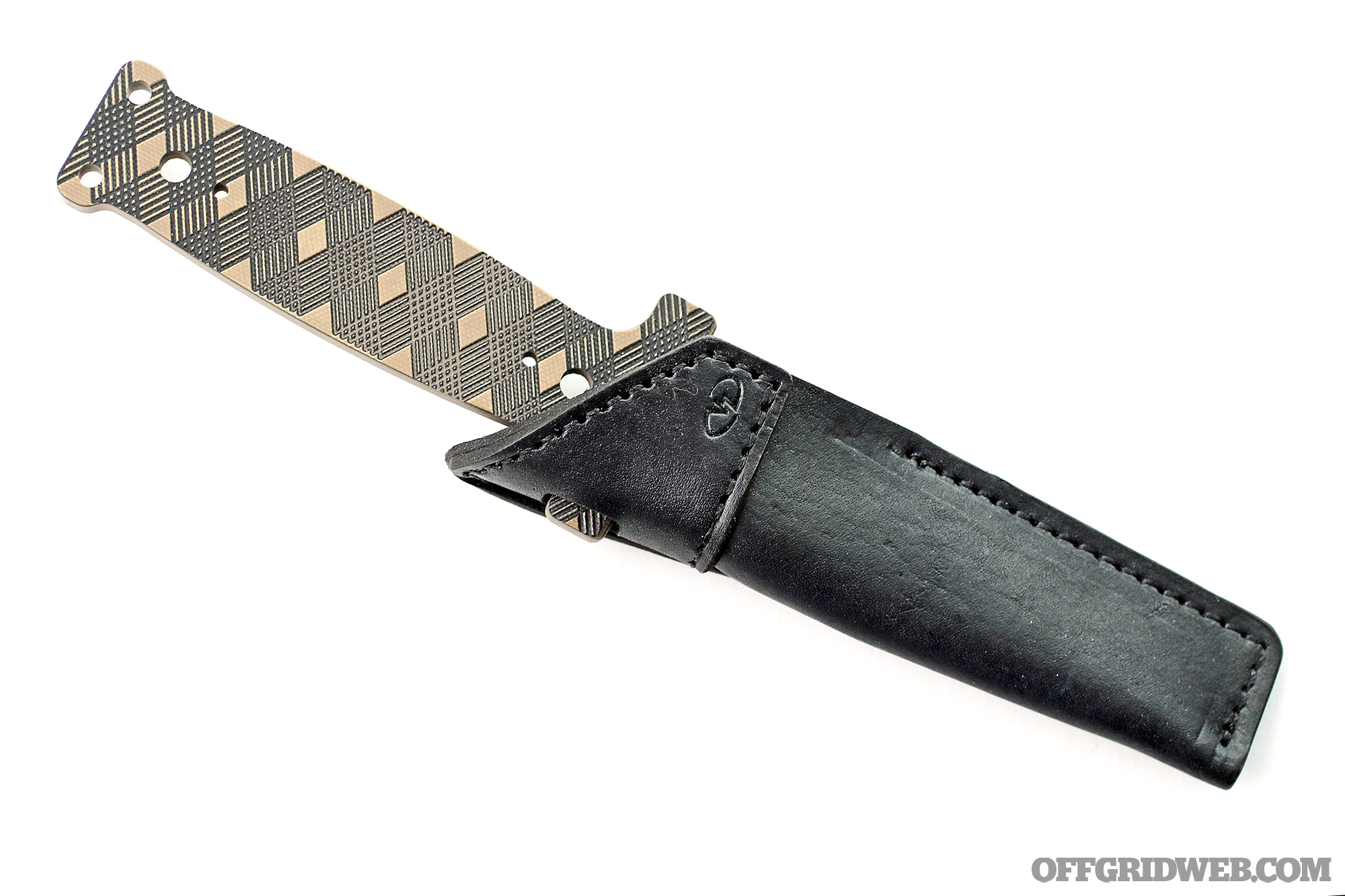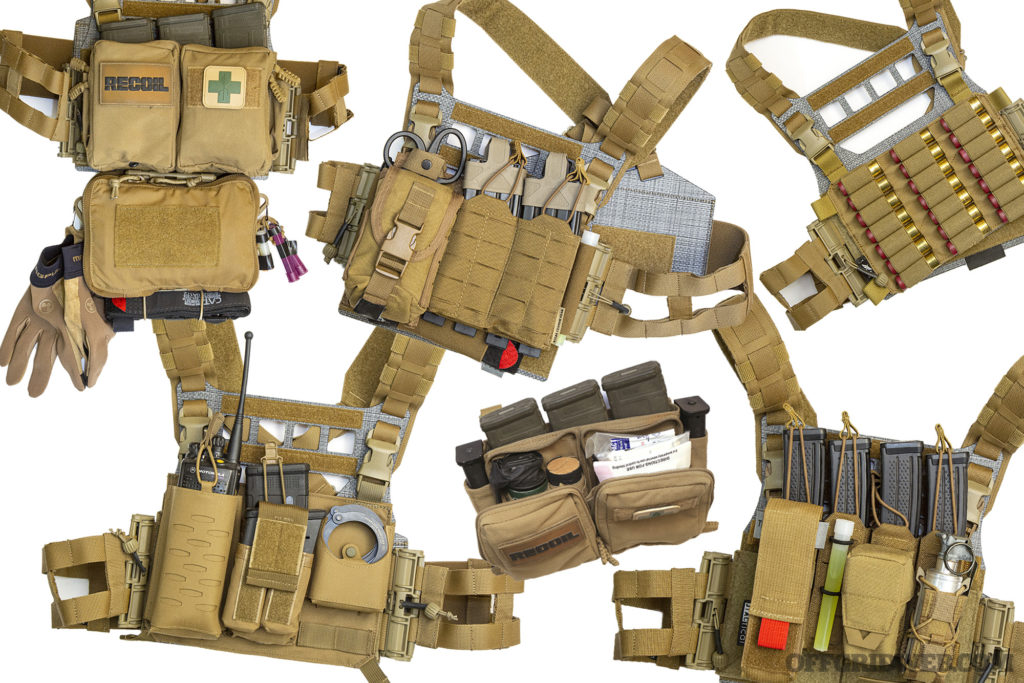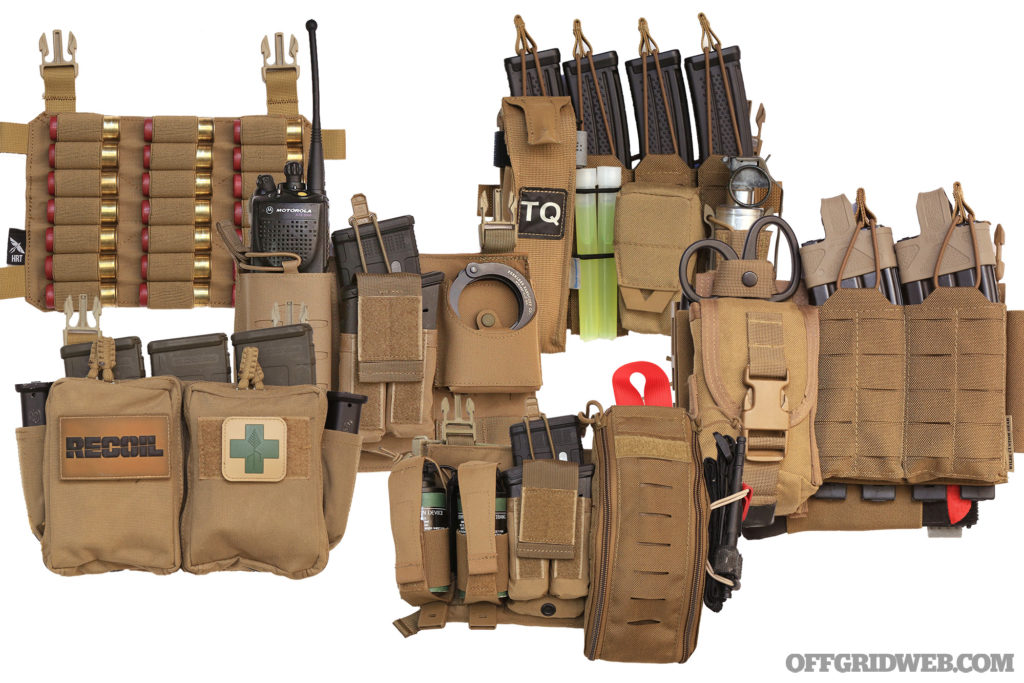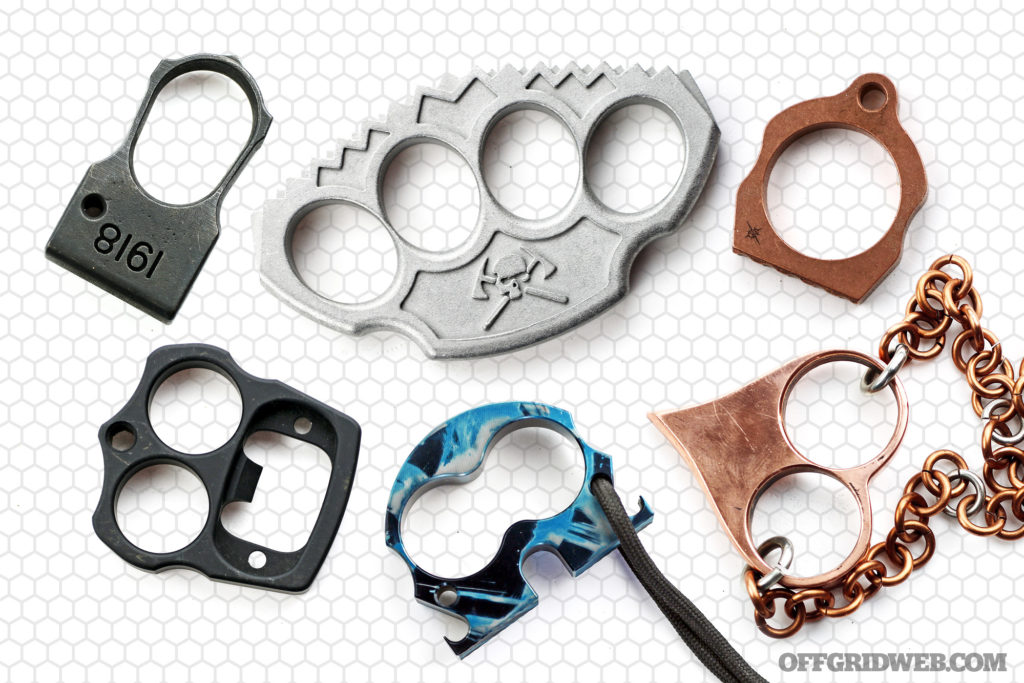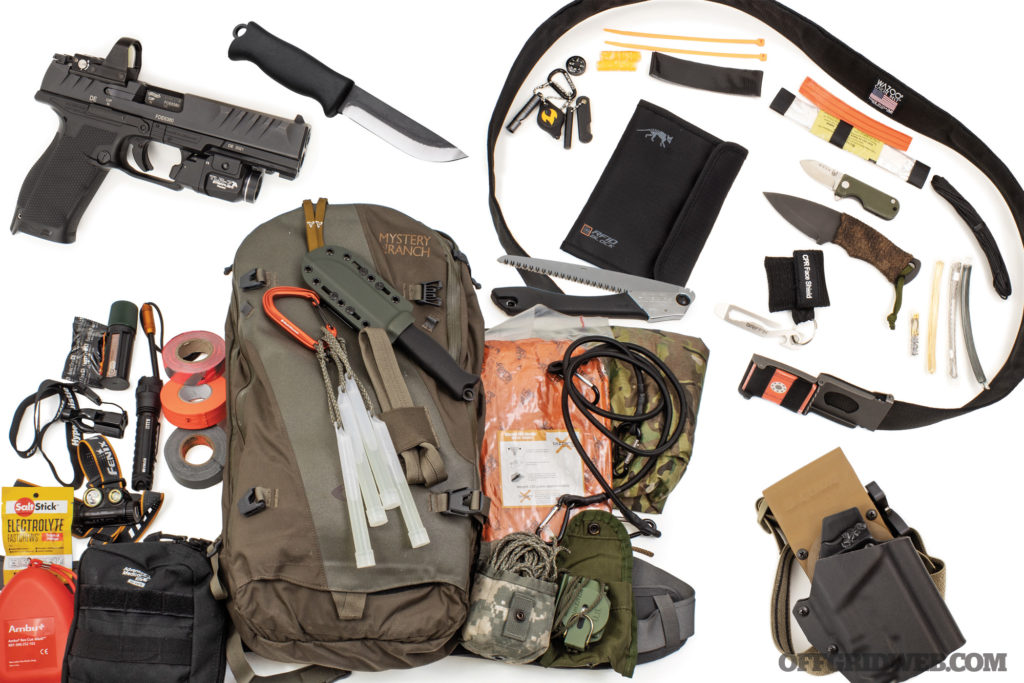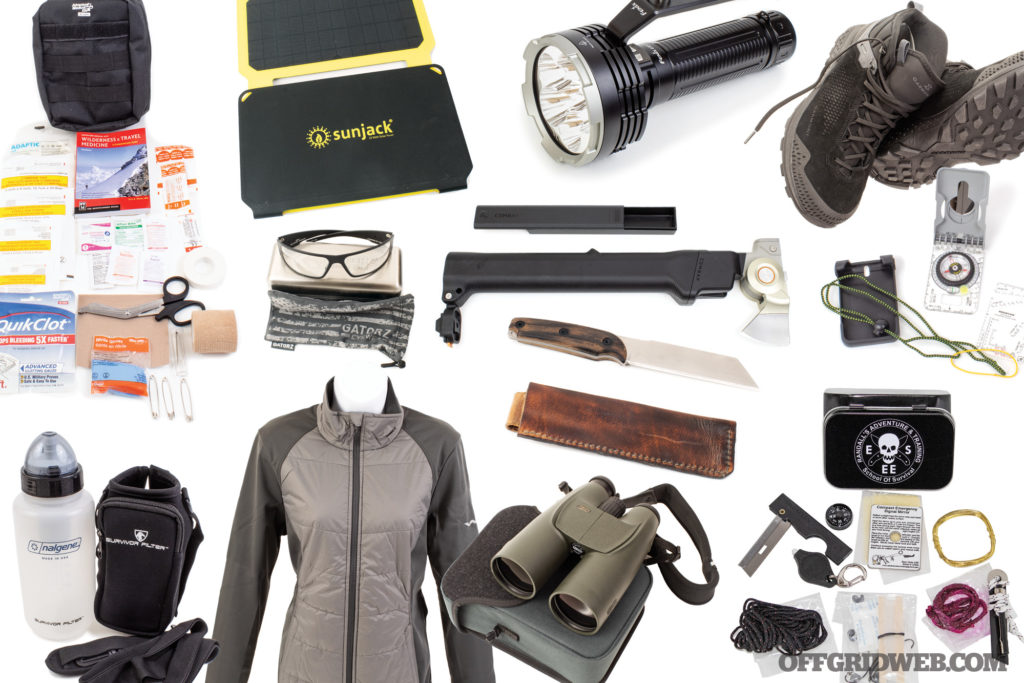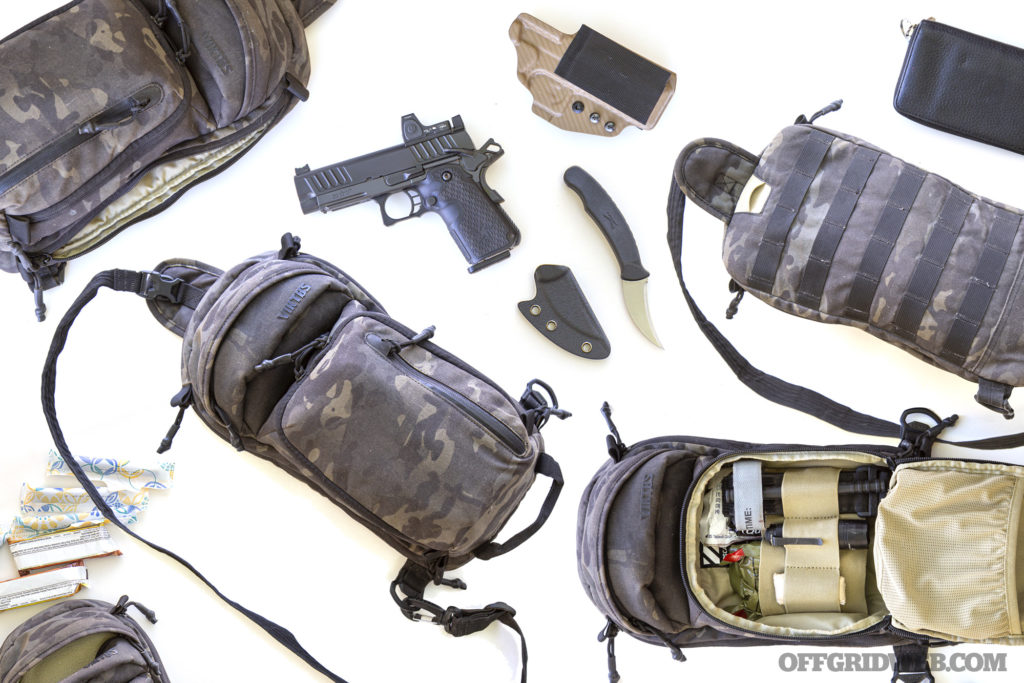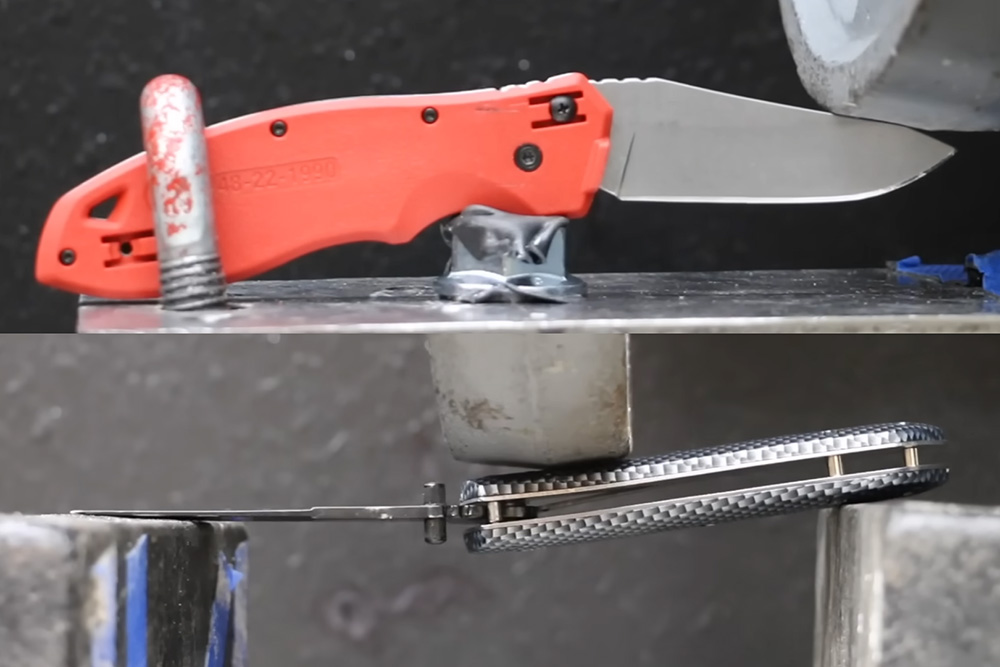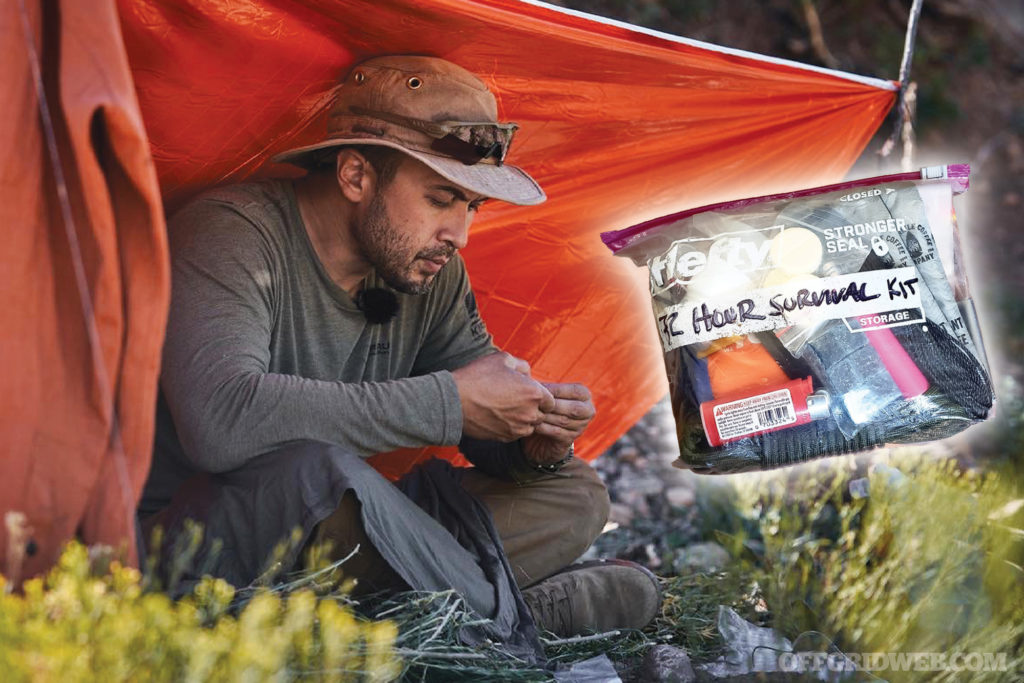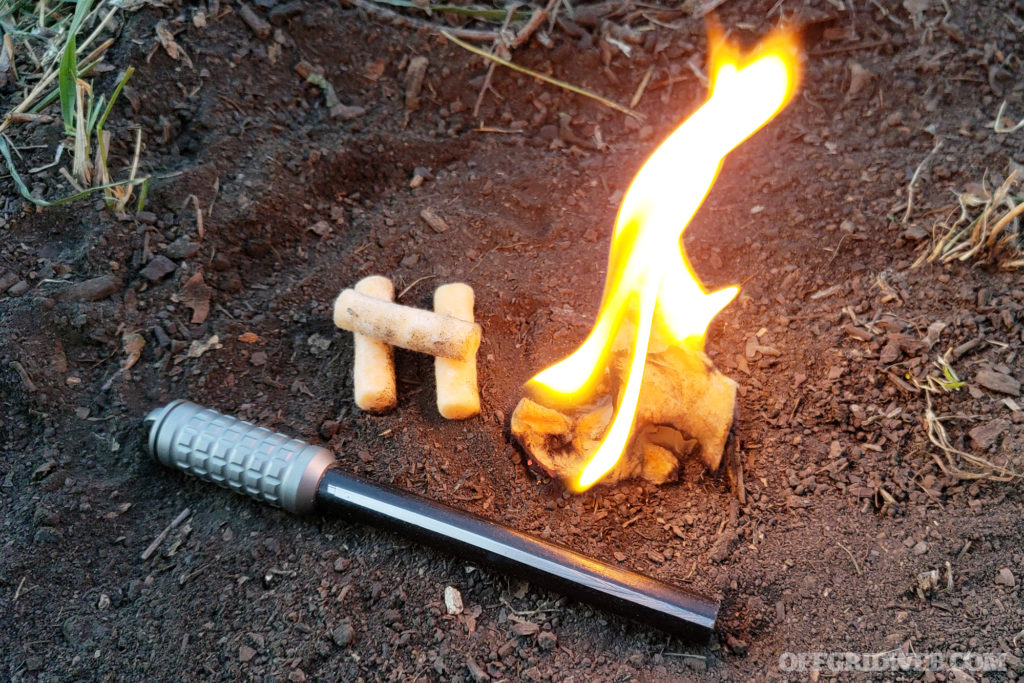To borrow a phrase from the firearms side of the house, knives have two enemies: rust and politicians. The latter is more complicated to deal with, but you can sometimes defeat the former by choosing a different blade material or treatment. A knife’s edge is composed of millions of microscopic serrations made of chemical compounds known as carbides. In blade steel, the carbide is composed of iron and carbon. The size and amount of these carbides affect how sharp a blade edge can be made as well as its wear resistance. However, because of the iron, they’re prone to rust and corrosion. For many knife users, extreme corrosion resistance is a necessity. You might need to do work in an extremely humid environment, or maybe you find yourself on the deck of a boat showered with salt water for long periods of time. Either way, you don’t want to find that your latest and greatest carry knife has rusted and pitted.
Another vein indirectly related to corrosion resistance is whether the blade has a metallic signature. Some of the pieces we’ll look at have none; these would be ideal for military and first responder types who may have to work around dangerous ordnance where a spark or even the magnetic presence of iron could trigger an explosion. (Refer to our nonmetallic knife guide for more details on the performance of various materials.) We take a look at some blades made from true “super steels” in this regard, as well as a few made from alternate materials. While researching this guide, several knives were offered to us with corrosion-resistant coatings such as Cerakote. The problem with these coatings is that the very nature of a knife blade renders these useless for protecting the edge from rust. The carbides will always be exposed when using the knife for cutting or even sharpening it. For this reason, we dismissed many blades that purely relied on a coating like nickel or hard chrome as well.
Mick Strider Flamed Titanium Nail
Blade length:
3.5 inches
OAL:
6 inches
Weight:
2.1 ounces
Handle Material:
Cord Wrap
Blade Material:
Titanium
Price:
$125
URL:
mickstridercustomknives.com
Notes: Strider Knives has a history of using every last piece of material from their knife-making endeavors in almost every project. Their WP models were smaller knives made from small pieces of leftover steel used in their larger combat knives, and the Nail represents the by-products of using titanium. This is a short, discreet piece that has a solid look and is a very capable stabbing tool for self-defense. Titanium contains no carbon and will not rust, so something like this can be left on a boat, in a car, or outside virtually forever without oxidizing. It comes in a minimalist Kydex sheath.
Pros:
- A cord-wrapped handle provides for an excellent grip in any environment.
- The point on this is like a needle, and you should have no problems poking holes in anything with it.
- Titanium’s light weight and superior corrosion resistance make this a great backup self-defense piece.
Cons:
- This is pretty much a spike or a shiv intended for stabbing. It couldn’t be used to slice bread or baton wood, for example.
- Not a regularly catalogued item. You’re more than likely only going to find one at a show where Strider is attending, or on one of their social media or website drops if you want to avoid the secondary market.
Spyderco Native 5 Salt
Blade length:
2.95 inches
OAL:
6.95 inches
Weight:
2.4 ounces
Handle Material:
FRN
Blade Material:
LC200N
Price:
$205
URL:
spyderco.com
Notes: Spyderco has a proven line in what’s known as their Salt series. These knives are made from extremely corrosion-resistant, nitrogen-based steels. They typically have high-visibility yellow handles, which are valuable when using them in the water, should you drop the knife or need it to stand out from the background (unless you paint the inside of your boat bright yellow, of course). The Native 5 Salt marries this treatment to one of Spyderco’s best U.S.-made designs. The spearpoint blade has a nice choil so you can choke up on it for more delicate tasks. The lockback mechanism is a time-proven design. The blade shrugs off any attempt at corrosion whether fully immersed in fresh or salt water.
Pros:
- The handle shape is a hallmark of Spyderco’s designs and extremely ergonomic.
- This was my first outing with LC200N steel, and I walked away impressed. Its chief property is substituting nitrogen for carbon in its composition. This is a very tough and seemingly corrosion-resistant knife.
- Spyderco’s round hole makes for a fast manual opener.
Cons:
- I get the use of FRN as a handle material to keep costs down, but milled aluminum handles or scales made of G10, carbon fiber, or Micarta might’ve made for a higher-quality feel.
- Piggybacking on that, there are no liners. I’m sure this is a cost-saving measure and a way to minimize the threat of corrosion, but liners could make a great knife such as this a little bit better.
Sandrin Monza
Blade length:
3.38 inches
OAL:
7.67 inches
Weight:
4.3 ounces
Handle Material:
Titanium
Blade Material:
Tungsten Carbide
Price:
$399
URL:
cabotguns.com
Notes: The Sandrin Monza is the latest folding knife offered by this Italian company. This knife, and all Sandrin knives, are distributed in the U.S. by Cabot Guns, makers of some of the highest-end 1911s in the world. This blade is unique as it’s made from tungsten carbide. It’ll never rust and its edge will outlast almost anything else made by man. I reviewed one of their earlier offerings a few years ago in RECOIL magazine, and this one is a huge improvement in terms of being a daily user.
Pros:
- The blade is made from polyhedral tungsten carbide with a Rockwell Hardness of 71 HRC — that means it’ll hold its edge seemingly forever.
- Extremely lightweight and a true pocketknife for EDC use. Its locking system is unique and one of the more impressive I’ve seen in a while.
- The knife is well-suited for most cutting chores, much more than some of Sandrin’s first offerings.
Cons:
- It requires two hands to safely close the blade. The lock is strong and reliable but retracting the lock bar one-handed might cause an injury.
- There’s no lanyard hole on the handle.
- Tungsten carbide requires a specialized sharpener, and if you don’t have the equipment or know how to use it, the knife would have to go back to Italy for a tune-up.
Böker Anti MC
Blade length:
3.23 inches
OAL:
7.68 inches
Weight:
2.5 ounces
Handle Material:
Titanium
Blade Material:
Ceramic
Price:
$144
URL:
bokerusa.com
Notes: Böker was one of the first companies to produce a working folding knife with a ceramic blade. Ceramic blades have been used in kitchens for food prep for decades. They require less sharpening, are lighter in weight, and won’t rust. The Anti MC is the latest incarnation of a ceramic folder produced by Böker. It’s a far cry from their initial offering nearly 30 years ago that had a 1-inch blade with a price point closer to custom knife territory. This one is the same size as a standard EDC pocketknife with a titanium frame lock handle.
Pros:
- This is one of the lightest EDC knives out there, and the ceramic blade and titanium handle make it truly rust-free.
- A ceramic blade is razor sharp and will retain its edge 10 times longer than a carbon steel blade.
- This is a very dressy-looking knife and will appear non-threatening should you need to use it in a social setting such as a restaurant.
Cons:
- You’ll need to exercise a little more care with this one; ceramic is brittle, and the blade can literally shatter when dropped or used to cut an object that’s too hard (such as bone).
- While ceramic seems to be able to cut forever, resharpening this knife will require a fine-grit diamond sharpening stone or belt.
Tom Krein G10 Bulldog
Blade length:
3 inches
OAL:
8 inches
Weight:
2 ounces
Handle Material:
G10
Blade Material:
G10
Price:
$250
URL:
kreinknives.net
Notes: Tom Krein is a custom knifemaker who also has his own production company to mass produce many of his own designs. He’s known for producing extremely sharp blades, and for many years was known for producing incredible regrinds on other maker’s blades. I’m typically not a fan of G10 or plastic blades, as they usually cannot hack it as a cutting tool for very long without carbides bonded to the edge in some manner. However, Krein’s skill as a sharpener really shows itself here, and his grind toward a thin edge makes for a surprisingly good cutter if you know the limits of the material. My first incident with this blade was thinking it was a trainer until I was shown how it cut through a plastic water bottle.
Pros:
- This is a 1:1 nonmetallic copy of Krein’s popular Bulldog model, a short clip-bladed non-folding knife.
- Because it’s G10, rust or corrosion won’t affect it, and the knife is extremely lightweight. It doesn’t weigh much more than its Kydex sheath.
- Surprisingly sharp and stabby due to Krein’s angles of sharpening and ability to make a thin edge
Cons:
- Since it has a G10 blade, its ability to remain sharp won’t last as long as other materials. Chores like batoning wood or skinning a deer are a bit much. This is more of a defensive tool against soft targets.
- More or less a custom piece and subject to availability
CRKT Hirin
Blade length:
3.39 inches
OAL:
8.69 inches
Weight:
5.9 ounces
Handle Material:
Titanium
Blade Material:
Bohler M390
Price:
$250
URL:
crkt.com
Notes: Looking like a cross between a high-end gentleman’s knife and something out of Star Trek, the Hirin from CRKT is a knife design by Dew Hara and produced in Maniago, Italy. This initial offering of 500 knives is proving to be popular with collectors and users who want a virtually rust-free knife. The blade rides on ball bearings to make for a smooth and classy opener. The skeletonized handle and blade make this a working piece of art and craftsmanship that’s highly corrosion-resistant on every level.
Pros:
- This blade has the perfect symmetry of a dagger blade without the double-edge factor. Skeletonized to reduce weight.
- Action is smooth; the blade flips open on ball bearing pivots.
- Bohler M390 steel proves to be great at edge retention, corrosion resistance, and simply as a working steel.
Cons:
- The look of this knife might be too artsy or busy for some. Because of its perfect symmetry, it’s possible to try to open it from the wrong side in the dark.
- This was a limited-edition run from CRKT. It may be sold out unless they produce another run; therefore, secondary market prices may apply.
VZ Grips Diamante G10 Dagger
Blade length:
4.75 inches
OAL:
9.9 inches
Weight:
2.4 ounces
Handle Material:
G10
Blade Material:
G10
Price:
$99
URL:
vzgrips.com
Notes: VZ Grips is known for making amazing G10 grips for handguns and AR-15 rifles. They’ve also been making a variety of special-use daggers, pens, and other items out of G10, such as the Diamante Dagger. The difference between this dagger and other G10 knives is the incorporation of some scary sharp serrations milled into the profile of the blade on each side. These are key to using this blade as a cutting tool as opposed to just for stabbing. You can choose either a leather or a Kydex sheath for this model.
Pros:
- The serrations are reminiscent of shark teeth. They mimic in macro size the pattern of carbides found in a steel blade and make for a very efficient cutter.
- The G10 handles are offered in a variety of colors, and you can match them up to the VZ grips on your favorite firearm.
- You could leave it on the bottom of the ocean or in a saltwater fish tank for years, and it’ll come out exactly as you put it in.
Cons:
- Some states regulate the ownership and/or carry of double-edged daggers, so be sure to check your local laws.
- While capable for most tasks, it still has some limitations. Good for EDC, not so much for bushcraft.
Related Posts
The post Pocket Preps: Corrosion Resistant Knife Buyer’s Guide appeared first on RECOIL OFFGRID.


